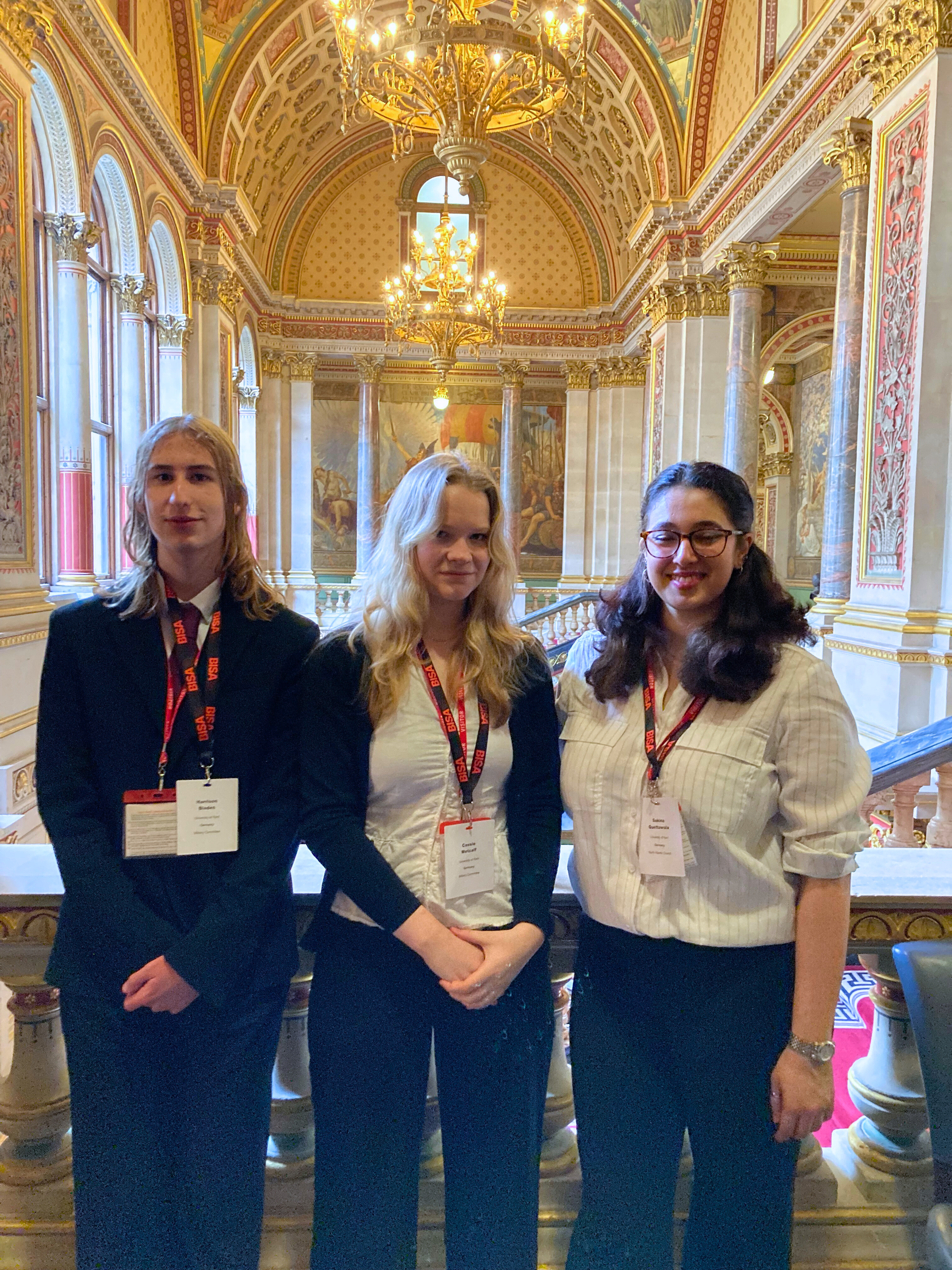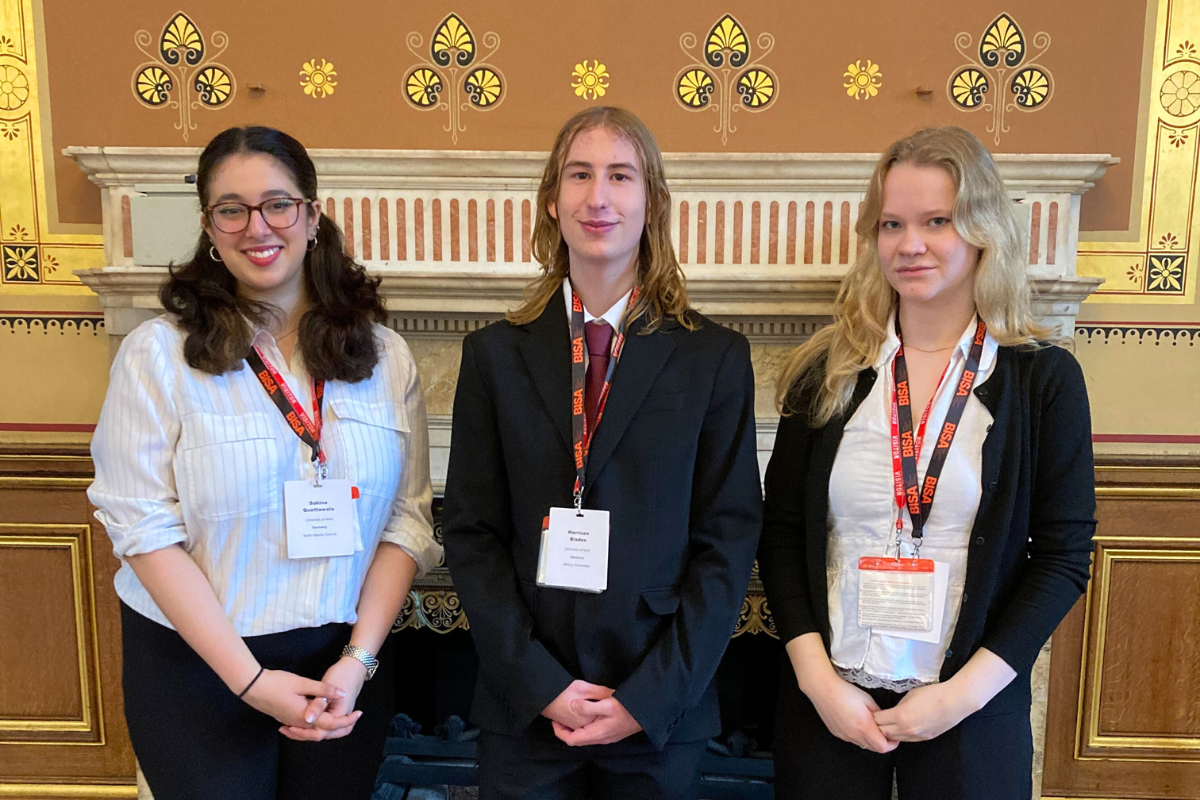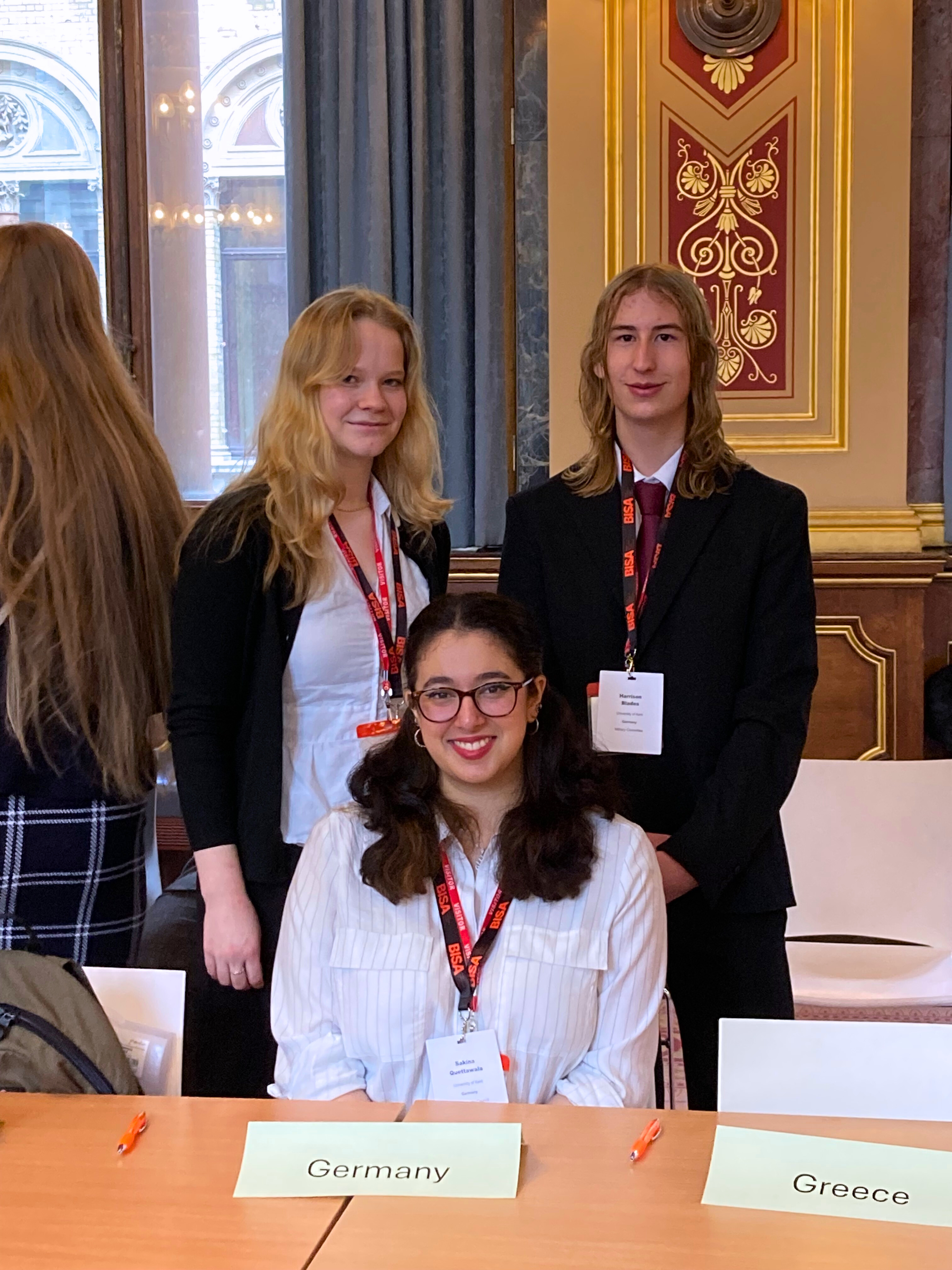Giving us a behind the scenes of Model NATO this year is Stage 2 Politics and International Relations BA student Cassie Metcalf. Read her take on this resolution-finding flagship student event.
‘In the early hours of March 6th 2024, Sakina, Harrison, and I travelled to the UK Government’s Foreign Office as the German Delegation for the BISA Model NATO Conference 2024.
Earlier in the week we received a crisis briefing, which informed us of the hypothetical situation we would be attempting to resolve during the conference. The situation involved severe earthquakes across the Mediterranean, with mass loss of life in Turkey, Syria and the Balkans.
The experience simulated the real processes behind closed doors during an unfolding crisis within NATO countries. As a member of the Military Committee, Sakina and I familiarised ourselves with the complex decision-making process – including consensus voting and the writing of resolutions.
The military committee was tasked with dedicating equipment and personnel to the disaster zone to mitigate further loss of life. In my pocket, I handily kept a list of every single operational vehicle within the German Army, so that we could remain authentic to true German Capability. An example of the vehicles we offered whilst representing Germany was 5 ‘Obelix’s’; German-made 130t capacity cranes, which could be used to set up much-needed field hospitals as well as move rubble.
As the process went on, we received further news regarding the disaster. This complicated our ability to respond to the ongoing earthquakes, such as aftershocks and a Volcanic Eruption in Sicily. Luckily, the Military Committee swiftly responded to the crisis; reaching full consensus on a comprehensive military and civilian response to the disaster, which included a particular focus on search-and-rescue operations.

Throughout the day, we collaborated with other countries on possible resolutions, which needed problem-solving and negotiation skills. A highlight of the day was negotiating with Albania and North Macedonia on where the focus of our rescue operation should be located. Such Balkan nations wanted a response centred around the Balkans, yet Germany (alongside other Nations such as the USA) believed it should be where the greatest loss of life occurred, in Syria and Turkey. By utilising our diplomatic skills, we were eventually able to convince the Balkan nations of our cause.
However, the North Atlantic Council (where Harrison spent the day) found it more difficult to reach a consensus. Where most delegations agreed, Russia remains the most important ongoing threat to NATO member countries and should therefore remain the highest priority. Slovakia disagreed, much to the dismay of the extremely tired room. The Council did eventually reach a consensus on a political response to the disaster, where the Russian threat remained NATO’s highest priority.
After the simulation drew to a close, we were invited to attend a speech by The Rt Hon James Heappey MP, who at the time was Minister for Armed Forces, as well as representatives from BISA. Due to our extensive research and knowledge of Germany’s capabilities, Sakina and I were delighted to be awarded the Most Authentic Delegation in the Military Committee!
The experience was extremely enjoyable. It gave me valuable insight into the real processes within NATO and the difficulties of negotiation and fast response. It particularly highlighted the importance of respecting current fragile geopolitical situations, even when trying to rapidly respond to new critical situations.
I was also able to meet delegates and academics from across the country while practicing valuable problem-solving and negotiation skills. The experience certainly solidified my interest in International Relations, Model UN, and Peace and Security.
Without BISA, Professor Whitman, or my fellow delegates Sakina and Harrison, this experience wouldn’t have been the same. I would thoroughly recommend this experience to anyone with an interest in International Politics or Negotiation and I look forward to reading about how the simulation unfolds next year.’
The Model NATO is a close as it is possible to get to simulating the way that NATO takes decisions. And being hosted by practicing diplomats at the Foreign Commonwealth and Development Office (FCDO) gives it an extra dimension in getting to experience working on a country’s foreign policy.
Professor of Politics and International Relations, Richard Whitman.


